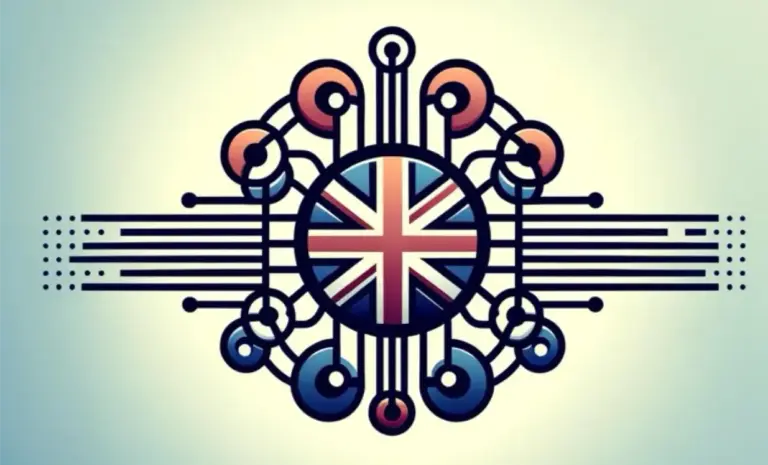War in Ukraine and the private sector

The image of a British Prime Minister interviewing Elon Musk at the UK government’s AI Safety Summit in November 2023 raised questions about the role of the private sector in tackling security issues. Private companies have played a high-profile part in the wars in Ukraine and Gaza, exemplified by the presence of prominent technology sector figures alongside world leaders at the Munich Security Conference in February.
The private sector’s involvement in warfare and security is not a new phenomenon: companies like the East India Company participated in conflict many centuries ago, with security privatisation attracting much scholarly attention since. More recently, since the terrorist attacks on the United States on September 11, 2001, the UK government increasingly sought to incorporate industry sectors into national security policy. Generally, this was pursued sector by sector, whether in defence, counter-terrorism, cyber threat mitigation, or broader resilience. Engagement ranged from urging boardrooms to invest in cyber security to incentivising the urgent production of ventilators at the height of the onset of the Covid-19 pandemic.
Private sector activity in the Ukraine war extends beyond these classical defence-supplier relationships. Within the defence industry, for example, two of the UK’s major defence companies—BAE Systems and Babcock—have expressed pride in establishing a presence in Ukraine. Other major British and European players like Germany’s Rheinmetall are also already invested. This is particularly striking when we recall that the home countries of these major industrial players are not technically at war with Russia.
Governments are also paying more attention to the responsibilities of privately owned and operated critical infrastructure providers across Europe in national defence. While the armed forces are rightly considered preeminent in countering attacks like the Nord Stream pipeline sabotage, there is now deeper scrutiny of the security contributions of energy and digital service providers, considering, for example, that undersea infrastructure is vulnerable to attacks.
The role of the financial services industry and other business sectors in reducing the economic viability of the Putin regime and its associates is also evolving into a mainstream security policy issue.
Alongside these actors, major technology company leaders have become significant players in the conflict. Amazon contributed to the resilience of the Ukrainian state at the onset of the invasion by extracting the country’s data to safety. The CEO of Palantir is outspoken in his support for equipping Ukraine with the most advanced AI technologies. Microsoft has become a major cyber security contributor. The satellite internet provider owned by Elon Musk’s SpaceX, Starlink, created concerns for governments after it declined to support a Ukrainian attack against Russian forces in Crimea in September 2022. This situation raises an important question about how a private vendor can shape a state’s defence planning.
Innovative new mechanisms
Ukraine has advanced public-private engagement proactively to support its war aims. At the outset, the government pursued a strategy of openly communicating on social media to motivate or otherwise ‘shame’ companies into pursuing specific actions. For example, it encouraged companies, including Google, to stop operating in Russia. Famously, a message on X in February 2022 from the Minister of Digital Transformation that pleaded with Elon Musk to open in-country services resulted in a short reply from the platform’s new owner: ‘Starlink service is now active in Ukraine’. Kyiv has systematically pursued commercial diplomacy, including high-level signing and award ceremonies, which has maintained high interest and motivation from across the private sector.
New mechanisms have also been created as ‘docking points’ for companies to engage and offer support. In Ukraine, the government created Brave1, a “united coordinational platform for defense tech […] to promote collaboration between all stakeholders of the defense tech industry”. It is organised across various ministries (on a whole-of-government basis) and draws significant industry engagement inside and outside the country.
Other industry convening bodies outside the country have been active. The UK tech sector trade association, techUK, has convened opportunities for British companies and start-ups to engage with the Ukraine government and its allied domestic tech sector. Innovative pop-up engagement vehicles like this have proved popular with companies operating across tech and defence.
Implications for the UK
Discussions at NATO and in Munich focused on the need for Western governments to increase military aid for Ukraine as an urgent priority. The strategy finally gaining momentum is to mobilise industrial production of munitions and other critical defence technologies like drones at pace and scale. This is overdue, and a key priority now must be for already-allocated investment—such as that available via UK Export Finance—to be leveraged quickly in support.
A lesson emerging from the war in Ukraine is that investment in conventional armaments and new technology needs to happen simultaneously. For Ukraine to succeed, a comprehensive public-private partnership framework across multiple sub-sectors is needed. This framework should include the development of its own domestic industrial base and the ongoing engagement of global players within defence, tech, and infrastructure—if not all sectors of the economy.
The war shows that any government has a key role to play in establishing a deep and well-coordinated defence-tech-industrial compact, which is a precondition for effectively implementing defence and security objectives. This is as relevant for Ukraine’s allies as it is for Ukraine itself.
The implications for the UK are profound and uncomfortable. The UK government has, for too long, resisted integrating fully the emerging technology and start-up community into its official structures for defence and security industrial strategy. The Ministry of Defence has not pursued a digital industrial strategy to date, unlike it has with other critical sub-sectors like the land domain. It is now falling behind other Whitehall departments, with criticism especially levelled at its approach to digital skills development. There is a worrying lack of joined-up discussion on harnessing the full spectrum of contributions from defence prime contractors, tech giants, and critical infrastructure operations. Engagement is siloed and without coordination.
The Ukrainian nation has shown many qualities to the world in the past two years. One has been the country’s impressive, even inspirational, ability to pursue a genuinely whole-of-government approach to industrial engagement on defence and national security across multiple sectors. The circumstances may have demanded embracing the ‘full tent’ like this, but the strategy yields dividends: Ukraine has secured extensive private sector support for its efforts. If they do not wish to fall behind, the UK government and its allies would be well advised to follow suit quickly.




